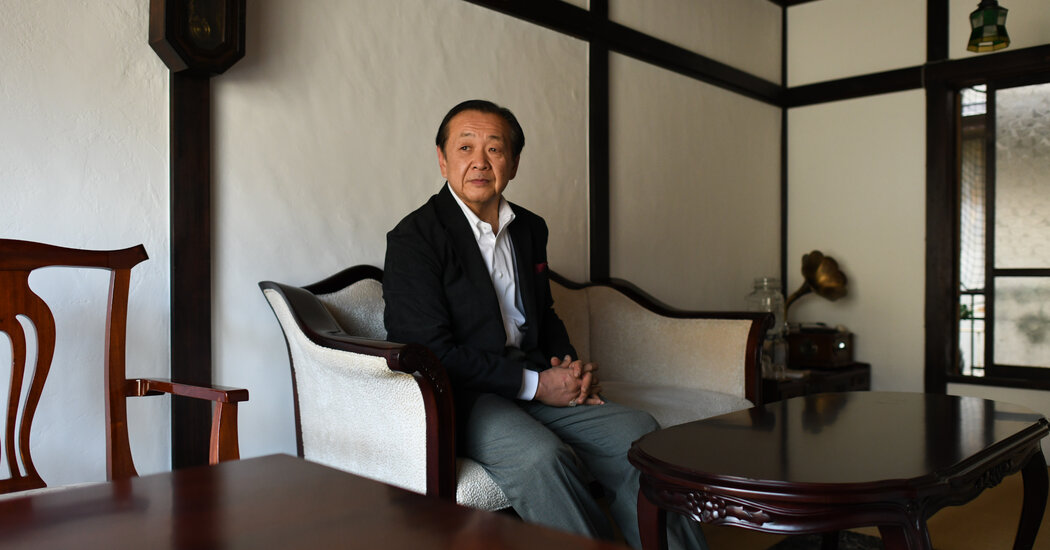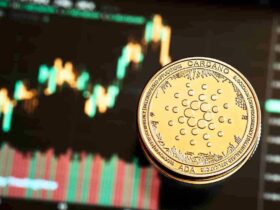Hideji Suzuki served six years in a Chinese prison on spying charges — a sentence that stemmed, he said, from a dinner party where he did nothing more than try to make small talk with a Chinese academic about North Korea.
Since returning to Japan in October, he has tried to raise the alarm about China’s seemingly arbitrary detentions of Japanese citizens. He is one of 17 Japanese nationals detained on similar charges since 2015, but the only one to speak out about his experience and what he describes as Japan’s weak efforts to help him. His goal, he said, is to shame the Japanese government into taking stronger action to aid others who find themselves at Beijing’s mercy.
Now, with the arrest last month in China of a Japanese pharmaceutical executive on espionage charges, Beijing has tested Japan’s resolve once again.
China is Japan’s largest export market, and Japanese politicians and companies alike have been reluctant to speak out about similar cases. But the new arrest has sent shock waves through the Japanese business community in China and garnered an unusually strong reaction from Tokyo, which has demanded the executive’s release. Japan’s foreign minister reportedly raised the issue on a trip to Beijing earlier this month.
The heightened reaction comes as Japan seeks to reduce its reliance on China, amid growing concern about Beijing’s rising assertiveness and dominant position in key supply chains. Japanese policymakers have taken a range of measures aimed at hedging against China, from increasing military spending to more closely coordinating industrial policies with the United States and other allies.
Still, even with the more vocal response, Japan’s actions in the latest case have been far more subdued than those of other nations facing similar situations. So far, Japan has not mustered anything approaching the outrage shown by Canada when China arrested two Canadians in 2018 on espionage charges in apparent retaliation for the arrest of a top executive at the Chinese telecommunications giant Huawei.
To Mr. Suzuki, Japan is falling short yet again. “It’s better than it was for me, but I think the outcome won’t change much,” he said in a recent interview in Tokyo.
While it is difficult to quantify China’s imprisonment of foreigners, Beijing seems to have detained an unusually high number of Japanese citizens on spying charges. In the case of Mr. Suzuki, the former president of a Japan-China friendship organization, his arrest came during a 2016 trip to China, one of more than 200 visits he had made to the country since first traveling there in 1983.
On these visits, he became close friends with many Chinese academics and top officials, even meeting Li Keqiang, the former premier, twice, he said. He went on to teach university courses about China and translate books about the normalization of ties between Japan and China after World War II.
More on Japan
- Geothermal Power: Japan’s abundant geothermal energy could play a major role in replacing the nation’s coal, gas or nuclear plants. But the owners of hot spring resorts are standing in the way.
- Strawberries in Winter: The strawberry crop in Japan peaks in wintertime, thanks to greenhouses and giant heaters. But this out-of-season farming has a huge environmental cost.
- Animal Cafes: The country’s exotic animal cafes are popular with locals and tourists. But a survey published earlier this year points to the risks these sites pose to wildlife conservation, public health and animal welfare.
- Relations With South Korea: In the latest sign of a diplomatic thaw, South Korea’s president, Yoon Suk Yeol, visited Japan for a summit with Fumio Kishida, the Japanese prime minister. It was the first visit of its kind in 12 years.
But as China’s wariness of foreigners grew, those relationships and credentials made him an object of suspicion, he said. He believes he was targeted as part of the Chinese government’s growing efforts to control academic studies of China, a push that has also led to the arrests of nearly 20 Chinese professors returning from work at Japanese universities.
Mr. Suzuki was preparing to fly home from Beijing when men in plain clothes threw him into a van, he said. He was held in informal detention and interrogated for seven months. During that time, the lights in his room were never turned off, even when he was sleeping, and his jailers let him see the sun only once, for just 15 minutes, he said.
When Mr. Suzuki was finally put on trial, the proceedings were closed and took just two days: one to read the charges and another to render his sentence. He was granted one appeal, which was rejected.
Mr. Suzuki insists that he is innocent. At the dinner party where he tried to discuss North Korea, he said, he simply asked how the country was doing. The Chinese academic’s response was noncommittal.
Conditions in Chinese prisons are harsh. Some Japanese detainees have lost teeth because of a lack of dental care. One died of unknown causes while incarcerated, according to the Japanese foreign ministry.
Japanese consular officers came to visit Mr. Suzuki once a month. But they offered little support, he said. When he asked one of the diplomats to make his case public, he said, he got a scolding: “They asked me, ‘Do you want to be any more famous than you already are?’”
When he finally returned home last October, he found that hardly anyone had heard about his detention, he said.
Nobuyuki Fukushima, a member of the lower house of Japan’s Parliament, said the Japanese foreign ministry had ignored his requests for updates about Mr. Suzuki’s case.
In response to questions from The New York Times about Mr. Suzuki’s detention, the ministry said that it could not discuss details of individual cases, but that, in general, it offered “as much support as possible” to detained Japanese citizens.
Japanese analysts attribute the surge in arrests to China’s introduction in 2014 and 2015 of new national security laws that targeted those deemed foreign spies and their local collaborators and expanded the scope of possible espionage claims.
The charges in spying cases vary but often appear to be arbitrary. Chinese law takes a broad view of what constitutes a state secret, including information that would be considered innocuous in other countries, said Bonji Ohara, a senior fellow at Sasakawa Peace Foundation and a former Japanese naval attaché in China.
“What’s illegal is not clearly defined, so it’s difficult for people who are active there to assess what they need to avoid,” he said.
Five of the 17 Japanese citizens detained on charges of violating state secrets laws, including the pharmaceutical executive, are currently jailed. A few weeks ago, another Japanese citizen received a 12-year sentence for spying, Japan’s foreign ministry reported.
But detentions of Japanese nationals go much further back. In 2010, China arrested four Japanese citizens who were accused of taking videos of military installations. Their detention came after Japan had taken into custody a Chinese ship captain whose trawler crashed into Japanese coast guard vessels near islands disputed by the two countries.
Shin Kawashima, a University of Tokyo professor, said that he stopped traveling to China for research in 2019, after the arrest of Nobu Iwatani, a professor of Chinese history. Mr. Iwatani spent about two months in detention before finally confessing to violating China’s espionage law, an admission that appears to have been made under duress.
Beijing has long viewed Japan as an enemy, and “it’s so easy for them to imagine Japanese spies are everywhere,” Mr. Kawashima said.
That’s especially true for those who speak the language and have deep networks in the country, he said. “The better you know China, the more suspicious they become of you,” he said.
China blamed the Japanese government for the arrests. Speaking at a regular news briefing late last month, a Chinese foreign ministry spokeswoman, Mao Ning, confirmed the latest detention and chided Tokyo for the significant number of Japanese arrested on spying charges in recent years.
“The Japanese side needs to do more to ask their citizens not to engage in such activities,” she said.
.
With Japan’s prosperity dependent on its access to China’s huge markets, the country is “the easiest to push around,” said Ichiro Korogi, a professor at Kanda University of International Studies who is an expert on Chinese politics.
That may be changing now as Japan takes a harder line on China. That, in part, is a response to Beijing’s crackdown on Hong Kong and its draconian handling of the coronavirus pandemic. Russia’s invasion of Ukraine has also sharpened concern in Japan that China could take similar action against Taiwan, destabilizing the region.
Mr. Suzuki hopes China will recognize that its treatment of Japanese citizens is working against both countries’ interests.
In the meantime, Japan needs to “take a stand and create a strong system for crisis management,” he said. “Otherwise, the next time someone is detained, there won’t be any chance of saving them.”
Keith Bradsher contributed reporting from Shanghai.
















Leave a Reply